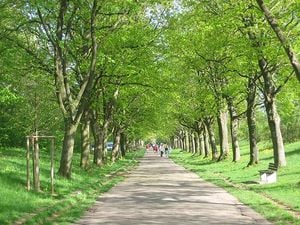
The Bringing to Action stage is where participants begin to identify the resources and stepping stones needed to get to the future. Social enterprises and links to funders are crucial. More important again would be access to free stuff – the cosmo-local ideas and blueprints available to download; ways to access free energy, grow food; the circular economy for fixing and exchanging. Counter coins give volunteers access to excess generated by businesses and services. For example free cinema tickets, transport during slow times, sell by date food etc
As the CAN shapes up, it can be 'sold' as a package, or a membership club to the third group. Could be door to door invitation to join the club or via compelling events.
Who wouldn't want to join the CAN?
Co-create a strategy for making the vision real[edit | edit source]
The third stage (after Friendly and Inquiry) is about Action: where a strategy is built for making the vision (developed through the Inquiry) real.
Depending on the size and status of the community, this might be where the 'usual suspects' – the people who have been working on alternative systems for decades – can help to connect the goals with projects already underway. It's where social enterprises turn ideas into projects that can apply for existing pots of funding. Or where original initiatives are matched with similar ideas already materialising in different parts of the world.[1]
Actions:
- begin to build a Citizen's Action Network. If you have the optimum mix in the room described above, the CAN arises from collaboration. Those with access to resources – not just their own, but also from outside the community - bring them into the space to meet the shared vision. The sort of things that might be on offer in a CAN could be food/energy/social enterprise hubs, learning clubs, "space invaders" (taking over empty buildings to use for talking, working, re-enchanting), local currency. Everyone plays a part, including joining a carefully chosen (or designed) digital network/group of networks.
Activation of a CAN[edit | edit source]
- Turn the CAN into a 'package' everyone might join, regardless of their values. To achieve this, you have to develop attractors – from food and energy deals to free stuff (meaning "access to excess" produce or services, for example free cinema tickets, free transport).
- To get to those who are not bothered, or alienated, sell this package door to door – possibly with young people earning Countercoins (ref).
- People can join the CAN digital network. Every member has a web page of their own and can sign up to multiple spheres of interest.
- Everyone is invited to monthly events which consist of something 'Friendly' and something more like a People's Assembly. Followed by chances to raise money for ideas. The model for this is Devon Convergence. [ref]
- CANs around the country form a network through which they share ideas and resources. They could also develop a shared manifesto of new political ideas, arising from this new political space.
Ongoing Collaboratories[edit | edit source]
Collaboratories can be constantly initiated within a community. As soon as one cohort has finished, another can start. A CAN is a steadily building collection of resources, projects and events.
Actions:
- Offering the CAN to everyone, on their terms:
The key to extending the network beyond those with similar values is to make it attractive on its own terms. More like a club that you might join for the benefits on offer. This brings people into relationship with the CAN, giving them access to a different culture that they can take or leave to start with. If events are thoughtfully targeted, distributed across diverse markets, it will eventually draw the community together. The digital membership will give everyone a chance to participate.
Political strategy arising from the CANs[edit | edit source]
The CAN becomes a good seedbed for people who might want to reclaim politics for the community. In Frome, Somerset, 17 people stood for local council elections, promising to change the rules to allow maximum participation of the people in decision making. 12 of the 17 won the first time they stood. They fulfilled all their promises, tore up the rule book, introduced participatory budgeting and were the first town to declare Climate Emergency. The second election they won all 17 seats.The first Mayor, Peter Macfadyen wrote a book called Flatpack Democracy and now there are 21 FD councils and many more in the making, Frome now has its own plan to go carbon neutral by 2030.
References
- How do you make a Citizens Action Network (CAN)? - The Alternative UK, slideshare.net/theplayethic
- ↑ Alternative Editorial: Mastering Overwhelm, Sep 1, 2019 thealternative.org.uk